Feb
14
2012

“Let this mind be in you which was also in Christ Jesus, who, being in the form of God, did not consider it robbery to be equal with God, but made Himself of no reputation, taking the form of a bondservant, and coming in the likeness of men. And being found in appearance as a man, He humbled Himself and became obedient to the point of death, even the death of the cross. Therefore God also has highly exalted Him and given Him the name which is above every name, that at the name of Jesus every knee should bow, of those in heaven, and of those on earth, and of those under the earth, and that every tongue should confess that Jesus Christ is Lord, to the glory of God the Father.” (Philippians 2:5-11)
This passage (or pericope?) retraces the Covenant pattern, which is also played out in the flow of the history of Israel. We’ll have a look at the structure of the passage and then I want to discuss the significance of the literary placement of “every tongue.”
WARNING: Weird ahead.
[This post has been refined and included in Sweet Counsel: Essays to Brighten the Eyes.]
Continue reading
2 comments | tags: Achan, AD70, Babel, Babylon, Circumcision, Covenant Theology, Evangelism, Genesis, Herod, Joshua, Moses, Pentecost, Philippians, Postmillennialism, Systematic typology, Tabernacle, Tongues | posted in Bible Matrix, Biblical Theology, The Last Days
Dec
22
2011
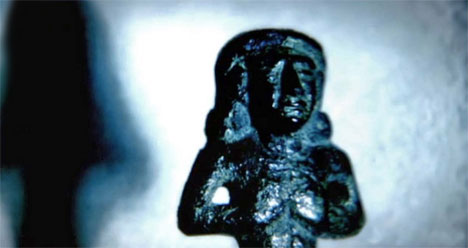
Along with many other academics — and many hymnwriters — J. R. Daniel Kirk believes the advent ended the Babylonian exile. He writes: “The exile was insufficient to pay for the people’s sins. So not only did the exile endure, so did the sins which were its cause.” Is really this the case? Israel never again worshiped the Canaanite gods. However, he still has a lot to say that is good:
Continue reading
Comments Off | tags: Babylon, Canaanites, Christmas, Covenant Theology, Exile, Matthew | posted in Bible Matrix, Biblical Theology, The Restoration Era
Nov
9
2011
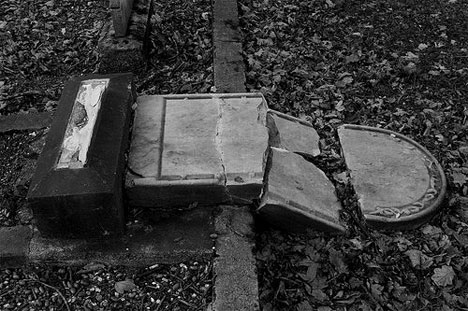
Micah Martin (brother of one of the authors of Beyond Creation Science), has kindly read Bible Matrix II and written about my adherence to the Genesis account of Creation as both Covenant and history (i.e. the account is not simply an account of the physical world being given a Covenantal purpose as a Temple, but also its actual Creation). There is much that we agree on, but the disagreement on this subject couldn’t be sharper, or of more importance.
Continue reading
2 comments | tags: Abraham, AD70, Against Hyperpreterism, Babylon, Covenant Creationism, Dispensationalism, Flood, Noah | posted in Against Hyperpreterism, Bible Matrix, Biblical Theology, Creation, Quotes, The Last Days
Sep
5
2011
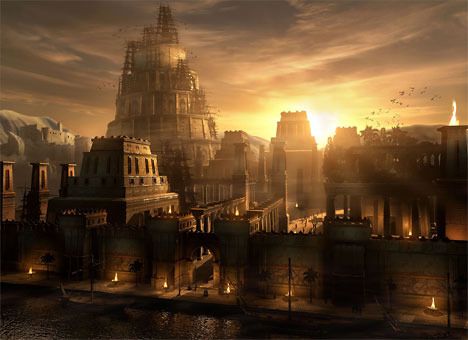
Joel 2: 1-11
Into Joel again, and he knows nothing of our chapter divisions. At least the chapter break occurs at the end of an obvious stanza. We are still within Ethics 3, so this is the Trumpets stanza of a Trumpets cycle (aren’t fractals fantastic?) It’s a bit like that movie Inception — as the prophecy moves forward, each step is expanded to further level of structure, a dream within a dream. In this case, it is a multi-level nightmare, a brewing, billowing thundercloud. [1]
Jerusalem had become a new Babel, so God raised up a real Babel in order to overrun the Land and swallow her up. Joel uses the Creation, Dominion and Feasts structures but applies them to the invading Babylonians in ironies that would go over our head — if we weren’t familiar with these literary devices!
Continue reading
Comments Off | tags: Babylon, Feasts, Joel, Literary Structure, Minor Prophets, Trumpets | posted in Bible Matrix, Biblical Theology
May
24
2011
or His God, is God
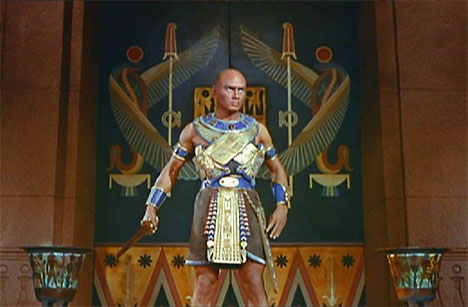
When it comes to the miraculous spiritual gifts, I’m a bit of a hybrid.
Continue reading
4 comments | tags: Babylon, Herod, Islam, Mission, Pharaoh, Tongues | posted in Biblical Theology, The Last Days
Mar
21
2011

Here’s a great post from Doug Hayes’ blog, republished here with his permission.
When Rich Bledsoe was with us at Family Camp he mentioned a paper he wrote: Sex and the City, [PDF] which we have now placed on the RCC website. It is an interesting piece of biblical social commentary worth thinking about.
Bledsoe contrasts the great ancient cities with the great city of God, the New Jerusalem and their respective sexual commitments and activities. At the base of his comments is the presupposition that it is important for us to think about cities because “the entire planet is ‘metropolizing.’ Everywhere, human beings are leaving their rural roots and are moving into the city.”
Continue reading
Comments Off | tags: Babylon, Culture, Doug Hayes, Eschatology, Marriage, New Jerusalem, Postmillennialism, Revelation, Rich Bledsoe | posted in Biblical Theology, Quotes
Oct
23
2010
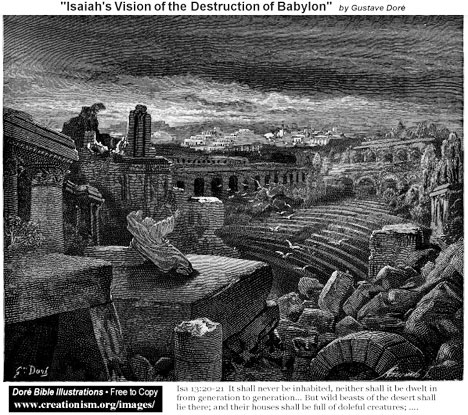
For those attempting to deal with the status quo futurist interpretation of Matthew 24, one of the most important observations is the fact that Jesus’ material has an Old Testament literary context. Some of his language is quoted from Isaiah 13. His prediction that the stars would fall from heaven comes from Isaiah’s burden against Babylon. The prophet used the Creation week as a structure for his denunciation. Continue reading
Comments Off | tags: Babylon, Creation Week, Isaiah, Literary Structure, Matthew | posted in Bible Matrix, Biblical Theology, The Last Days, The Restoration Era
Oct
18
2010
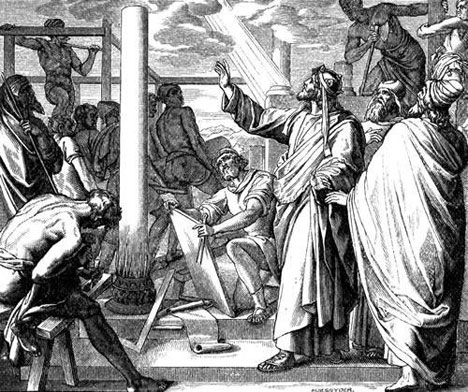
“Egypt, Judah, Edom, the people of Ammon, Moab, and all who are in the farthest corners, who dwell in the wilderness. For all these nations are uncircumcised, and all the house of Israel are uncircumcised in the heart.” - Jeremiah 9:26
Reading through the Old Testament as a young Christian, I always felt the Bible got bogged down when the Lord started pronouncing judgments upon nations other than Israel. For starters, I hadn’t paid enough attention earlier to remember who these sovereign states were. And more to the point, wasn’t God losing the plot a bit? I mean, there were plenty of other peoples during these times which aren’t even mentioned in the Bible at all.
Unfortunately, few commentators take the Bible seriously enough to understand what is actually going on. Older books will fill you in on the background, which is certainly helpful. But the big question is Why is God doing this now?, both now in history and now in the prophet I am reading?
As usual, when the structure and context of things is understood, seemingly boring “classic” texts suddenly come to life. In the case of the prophets it is a consuming fire. Continue reading
Comments Off | tags: Babylon, Creation Week, David, Egypt, Ezekiel, goliath, Literary Structure, Numbers, Numbers 5, Revelation, Solomon | posted in Bible Matrix, Biblical Theology, The Last Days, The Restoration Era
Mar
29
2010
or The Self-Maledictory Oath
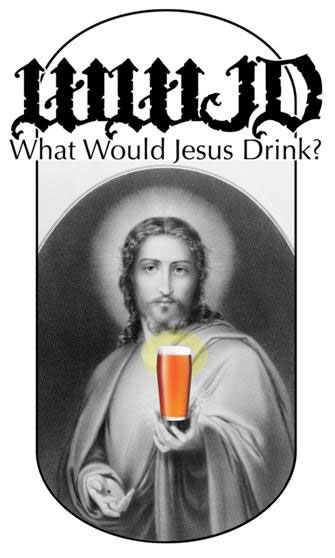
For thus says the LORD God of Israel to me: “Take this wine cup of fury from My hand, and cause all the nations, to whom I send you, to drink it. “And they will drink and stagger and go mad because of the sword that I will send among them.” Then I took the cup from the LORD’s hand, and made all the nations drink, to whom the LORD had sent me…” (Jeremiah 25:15-17)
The content of this post has been revised and included in Bible Matrix II: The Covenant Key.
__________________________________________________________
[1] See Sacramental Doses of Death.
[2] This is the execution of a Covenant curse, so those who fought against Jerusalem were people under the Covenant.
[3]Contrary to popular opinion, I believe that the divided animals substitute for the Canaanites rather than for Abraham, but the birds do substitute for Abraham. The birds are the head of the Covenant, and He is never crushed. Only the serpent’s head is crushed. This also relates to the linen left in Christ’s tomb. The Jew-Gentile body was divided in Abraham and reunited in Christ. See Pass-over and Pass-Through.
[4] See Three Babylons.
[5] This also relates to the disappearance of the pure Covenant-head, the Ark of the Covenant. See The Lost Ark.
Comments Off | tags: Abraham, Ark of the Covenant, Babylon, Covenant Theology, Ezekiel's Temple, Gethsemane, Jeremiah, Numbers 5 | posted in Biblical Theology, The Restoration Era
Nov
3
2009
or Every Knee Shall Bow
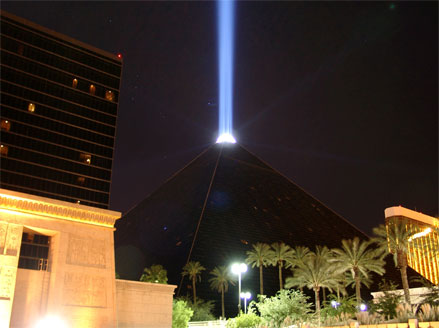
Day 1
So, Adam fouled the first Sabbath. He failed to be Light.
Day 2
Cain made a false exodus (with Abel as the Passover lamb) and went to “worship in the wilderness.” God marked him as a “covering.” Being “barren”, Cain built a city as a covering, but it was just like Adam’s figleaves. It was a phony firmament, a fabricated Covenant, a city built on the wrong sort of blood.
Day 3
His offspring built a counterfeit Tabernacle – in opposition to the worship at the Gate of Eden. This was a false Land, a false mountain, like Mount Gerizim became to the Samaritans. Lamech, as a false Moses, “ascended” not as a Lamb slain, but as an accuser, the incarnation of the serpent. But someone true ascended as Firstfruits: Enoch.
This brings us to Day 4. As in the Garden, and as in Israel’s wilderness, the test was harlotry.
Continue reading
Comments Off | tags: Abel, Babylon, Cain, Egypt, Enoch, Genesis, Herod, Incense Altar, Lamech, Noah, Satan, Seth, Sodom | posted in Biblical Theology, The Last Days



































